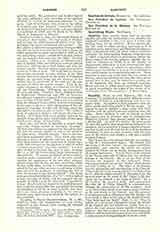

Sanction (Lat. sancire, same root as sanctus), signifies primarily the authoritative act whereby the legislator sanctions a law, i.e. gives it value and binding force for its subjects. Hence, objectively, the law itself is called sanction inasmuch as it is imposed on the consciences and obedience of subjects; thus ecclesiastical laws are often called sanctiones canonicae. In more modern language every measure is called a sanction which is intended to further the observation of the law by subjects, whether the reward to whomsoever fulfills it, or the penalty or chastisement inflicted or at least threatened for non-fulfillment, whether it relates to prescriptive laws which require something to be done, or to prohibitive laws which require that something be omitted. These sanctions in turn may result from the very nature of the law, which are internal sanctions like those of the natural law, or they may be added by a positive act of the legislator, and these are external sanctions. Hence sanction is called moral, psychological, legal, or penal, according to the origin or the nature of it. (See Ethics; Law; Punishment.)
A. BOUDINHON

